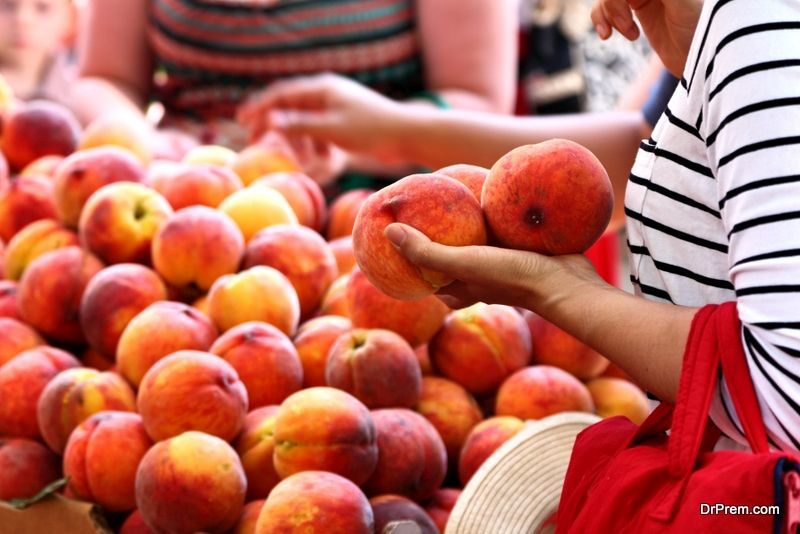Eating local food is something that more and more people now seem to see as aspirational for economic, ethical and environmental reasons.
Shoppers are increasingly aware that by buying food indiscriminately with no consideration for production methods or origin they can be adding to world issues including deforestation, drought, hunger and carbon emissions.
But how much better for the environment is buying local in truth? Here we take a peek at the issue.
Food miles are only part of the picture
 A recent poll by retailer AO showed more than 70% of people say buying local produce is important and more than 60% are prepared to pay more for it. Its interactive guide also demonstrates where some of the UK’s most popular fridge essentials typically come from – with even potatoes coming from as far away as Egypt.
A recent poll by retailer AO showed more than 70% of people say buying local produce is important and more than 60% are prepared to pay more for it. Its interactive guide also demonstrates where some of the UK’s most popular fridge essentials typically come from – with even potatoes coming from as far away as Egypt.
These ‘food miles’ (the distance travelled by food to reach the plate) were once a popular measure, but one that made it all too easy to assume that reducing food miles was the key to reducing our carbon footprint.
In reality, whilst food miles are one factor to consider, they are not the only measure of the environmental impact of a food.
For example it may be less environmentally friendly to grow tomatoes in heated glasshouses in Britain than it is to import the fruit from Spain.
Another issue is in relation to the mode of transportation used to move a food. A food grown closer to home may travel by road instead of plane and have a smaller environmental impact in that sense. However a food transported from further afield by train may have less impact than one that has travelled less distance by another means.
Devona Bell, NCAT (National Centre for Appropriate Technology) deputy director and sustainable agriculture specialist, made this point last year, during her address ‘environmental benefits of local food systems’.
She said 83% to 85% of the environmental impact of food was to do with production method not food miles.
So buying local doesn’t help the environment?
 Whilst buying local doesn’t automatically mean an overall environmental win, it is likely that those who consider and start to make the effort to shop locally for their groceries will create environmental benefit.
Whilst buying local doesn’t automatically mean an overall environmental win, it is likely that those who consider and start to make the effort to shop locally for their groceries will create environmental benefit.
Just buying local isn’t enough in itself, but buying local goods usually means a developing interest in how food is produced and its origins and this is one of the big keys.
Often, what we consider to be ‘local food producers’ are smaller food producers and those with an interest in protecting and cultivating the land on which they are operating. If that is the case there are huge other potential environmental gains from shopping local to add to reduced food miles, providing it doesn’t mean lots of additional car journeys for you to gather various items from different outlets, which may also take their toll!
Buying local, such as from a farm shop or market, may also mean less packaging, which takes its own environmental toll, as is increasingly highlighted by organizations such as WasteAid.
What Greenpeace has to say on local foods
 While non-governmental organization Greenpeace agrees that shopping local is not the biggest thing you can do to reduce the environmental impact of your diet, it does advocate it, particularly because it encourages us to ‘reconnect with our food.’
While non-governmental organization Greenpeace agrees that shopping local is not the biggest thing you can do to reduce the environmental impact of your diet, it does advocate it, particularly because it encourages us to ‘reconnect with our food.’
Article Submitted By Community Writer




